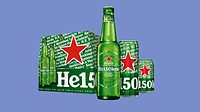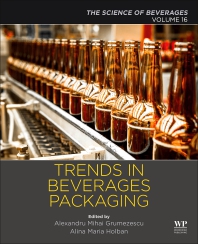Recovering more recyclable materials
Industry works to fill the gaps in recycling


|
|
Ripple Glass placed 25-yard roll-off purple containers in which residents can deposit glass containers in 80 strategic locations around Kansas City, Mo. |
Beverage companies are taking on new strategies in regard to the goals of their recycling initiatives. One would be hard pressed to find a beverage company not involved in recycling, but the industry continues to expand existing recycling programs.
Craft brewer Boulevard Brewing Co., Kansas City, Mo., had to expand its recycling efforts in order to become a zero-landfill facility in January. In 2009, Boulevard’s Founder and President John McDonald, Chief Financial Officer Jeff Krum and Technical Director Mike Utz became co-founders and principals of Ripple Glass, a glass recycling company, to help close the loop in the brewer’s glass bottle consumption.
The seed for the glass recycling company was planted about 10 years ago when Boulevard began working with a local organization on a byproduct synergy project. The project aimed to use waste from one manufacturer as seed stock for another manufacturer in Kansas City. During the project, it was identified that reuse and recycling avenues were available for most of the brewery’s waste, but, the brewery also generated waste glass. Boulevard, however, did not produce enough waste glass, and it wasn’t processed, which would have made it a viable business proposition to local fiberglass producers that could use the recycled glass in their products.
After years of research on recycling programs in U.S. and European cities, some of Boulevard’s leadership team decided Kansas City’s model needed a glass collection system and a glass processor to make the glass recycling system work in the city. Ripple Glass was formed to collect and process the glass for reuse by glass makers and fiberglass operators, such as Owens Corning in Kansas City.
Ripple Glass decided that it didn’t want its glass collection to be only for beer bottles, Utz says. The company designed 25-yard roll-off purple containers for residents to deposit glass containers, and it placed them in 80 strategic locations around the city, including the brewery, large local employers, liquor and grocery stores. Ripple Glass employs a hauler to pick up the glass and bring it to its facility in downtown Kansas City. The company then cleans, crushes, dries and sorts the glass, removing the amber-colored portions.
The amber glass is sold to Boulevard’s bottle maker Verallia, Muncie, Ind., a glass packaging brand of Saint-Gobain, which then manufactures amber ECO Series beer bottles to be sold back to Boulevard. Verallia expects to purchase 2,000 tons of recycled glass from Ripple Glass this year.
“At Boulevard, we can actually say that our bottles get turned back into our bottles, so it’s almost a continuous loop being generated,” Utz says.
The rest of Ripple Glass’s recycled glass is sold to Owens Corning to make insulation.
“Within 30 days of glass containers entering our plant or even dropping it into a bin, it’s turned into a new product — either insulation or beer bottles,” Utz says.
Ripple Glass collects glass throughout the Midwest. Last year the company was able to double the recycling rate in its hometown to 8,000 tons. In turn, at the end of 2010, the recycling company doubled its capacity.
Although Ripple Glass is a separate company from Boulevard, locally people understand that Ripple is a product of Boulevard.
“People have a greater appreciation of what a small company like Boulevard has done for the community, so it certainly reinforced our commitment to the community and people’s understanding of our commitment to Kansas City,” Utz says. “Beyond that, without Ripple Glass being in town, Boulevard would not be able to do zero landfill.”
Along with promoting glass recycling through local media outlets and social media, at the end of last year Ripple Glass started a pilot program to introduce glass recycling to about 80 bars and restaurants in a small area of Kansas City. Ripple Glass installed glass-only bins at participating bars, restaurants and on-premise locations and developed a collection system to put bottles into these bins as part of the Ripple Glass certification program. Certified bars and restaurants are given stickers and other designation for promotion in their buildings and menus. This year the company is expanding the program in the hopes of going city-wide, it says.
“About 60 percent of the glass waste is generated at bars and restaurants, so for us to be viable and to have a big impact in the city, we really need to satisfy that challenge,” Utz says.
Recycling more
materials
Another company that works with beverage companies to aid in the destruction and recycling of unsaleable products is Parallel Products, Louisville, Ky. One of Parallel Products’ core businesses is to provide secure product destruction and recycling to companies nationwide. Parallel Products receives beverages that need to be destroyed for numerous reasons — including being out of code — and keeps the products out of landfills and tertiary markets.
“The key is that we’re providing brand protection,” says Ken Reese, Parallel Products’ vice president of sales and marketing.
The company’s goal is to recover the maximum amount of recyclable materials from waste products that arrive at its four facilities in Louisville; Rancho Cucamonga, Calif.; New Bedford, Mass.; and Bronx, N.Y. Parallel Products accepts beverages in glass, PET, aluminum and an array of other packaging configurations. At the company’s newly redesigned plastics processing facilities in New Bedford and Bronx, it provides collection, auditing and recycling services for bottlers and distributors as required by state bottle bill recycling laws.
The recycling process begins by emptying the beverage liquids from the containers through shredding or crushing equipment. The recycling centers in Louisville and Rancho Cucamonga recover the liquids that are then used as feedstock for ethanol recovery and production processes. Sugar-based liquids are subjected to a fermentation and distillation process, while alcohol beverages undergo distillation to produce waste-derived biofuel.
“We are differentiated by our ability to utilize the waste liquid materials to create an advanced biofuel rather than wasting the potential energy contained within by treating and discharging to the local [publicly owned treatment works],” Reese says. “This allows Parallel Products to maximize resource recovery. If you receive a can of soda, which weighs approximately 14 ounces, rather than recycling 10 percent of that through the recovery of only the container, Parallel Products is able to recycle greater than 99 percent of the product while contributing to the reduction of our nation’s reliance on non-renewable fossil fuels.
“With the existing dispute regarding the ecological and economic benefits of ethanol production related to food offsets and groundwater contamination, creating waste-derived ethanol creates a truly positive energy balance with clear benefits for the environment,” he continues.
Parallel Products receives, destroys and recycles approximately 13 million case equivalents of beverages each year. Parallel Products’ recovery and manufacturing efforts generate approximately 5.5 million gallons of ethanol each year.
“My favorite quote related to the ever-growing sustainability movement is: ‘In the past we harvested resources and managed waste. Now, and in the future, we must manage resources and harvest wastes,’” Reese says. “This, to me, encapsulates what Parallel Products is striving to do.” BI
Looking for a reprint of this article?
From high-res PDFs to custom plaques, order your copy today!





